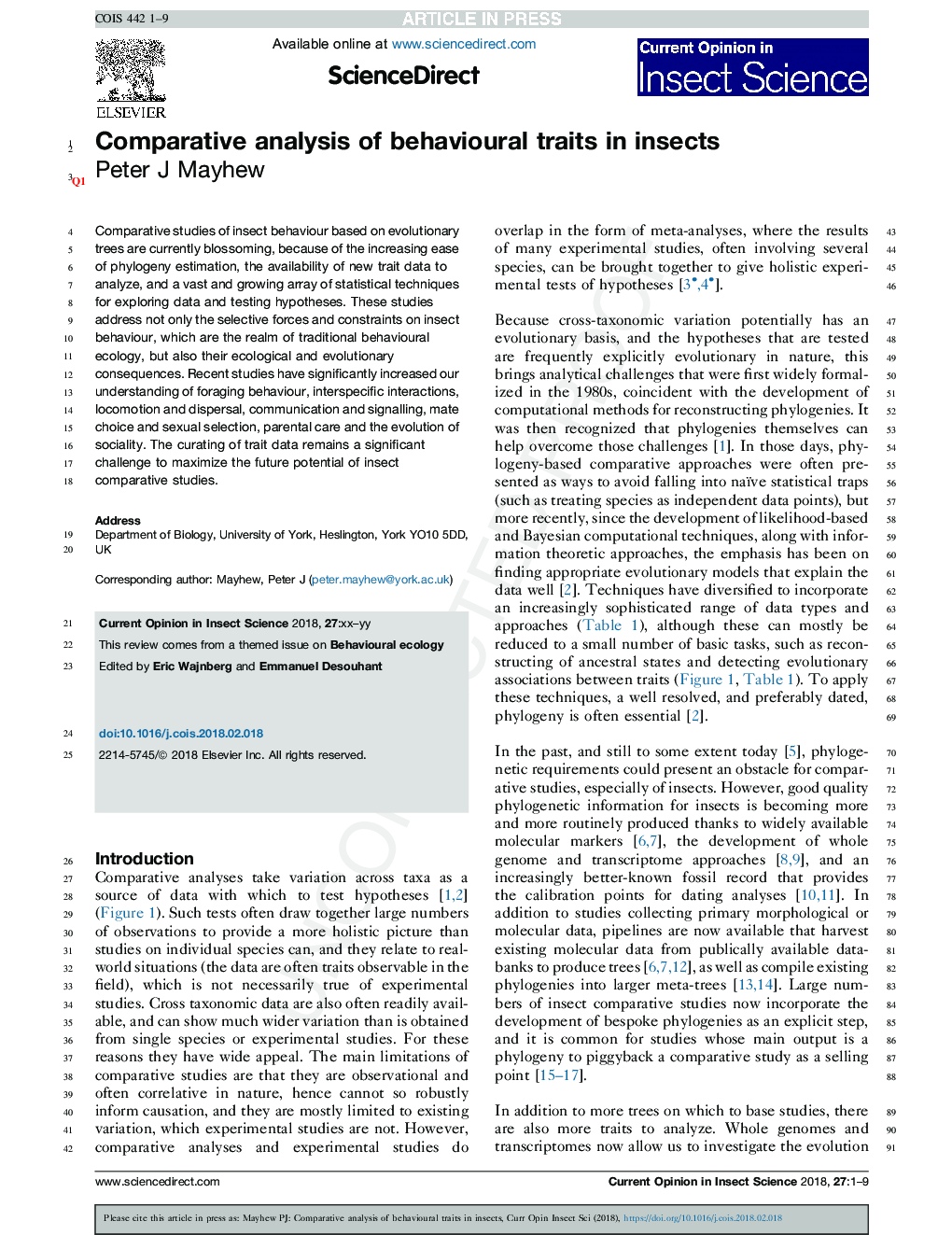| Article ID | Journal | Published Year | Pages | File Type |
|---|---|---|---|---|
| 8878513 | Current Opinion in Insect Science | 2018 | 9 Pages |
Abstract
Comparative studies of insect behaviour based on evolutionary trees are currently blossoming, because of the increasing ease of phylogeny estimation, the availability of new trait data to analyze, and a vast and growing array of statistical techniques for exploring data and testing hypotheses. These studies address not only the selective forces and constraints on insect behaviour, which are the realm of traditional behavioural ecology, but also their ecological and evolutionary consequences. Recent studies have significantly increased our understanding of foraging behaviour, interspecific interactions, locomotion and dispersal, communication and signalling, mate choice and sexual selection, parental care and the evolution of sociality. The curating of trait data remains a significant challenge to maximize the future potential of insect comparative studies.
Related Topics
Life Sciences
Agricultural and Biological Sciences
Agronomy and Crop Science
Authors
Peter J Mayhew,
